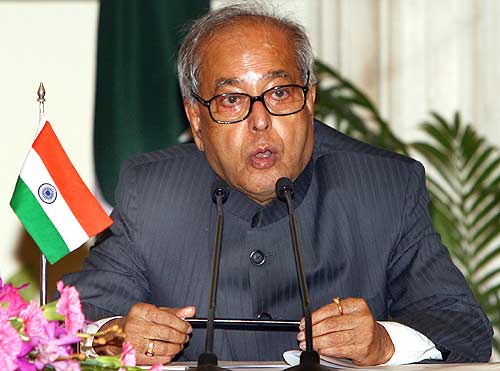
A man for all seasons, Pranab Mukherjee is a rare politician who has been a minister in all the party governments since the mid-1970s except for the Rajiv Gandhi government between 1984 and 1989.
The eternal 'number two', Pranab Kumar Mukherjee was a trusted lieutenant of late Indira Gandhi under whom he was the powerful Minister of State for Revenue during the emergency and later became a full-fledged Finance Minister between 1982 and 1984.
The 73-year-old leader from West Bengal, who took to politics under the tutelage of late Ajoy Mukherjee of the Bangla Congress, Mukherjee had briefly gone out of the Congress in the mid-1980s in the aftermath of Indira Gandhi's assassination.
After his reported brush with Rajiv Gandhi, who took over from his mother in 1984, Mukherjee exited Congress and started his own party -- Rashtriya Samajwadi Congress -- only to merge it with the parent party again in the last years of the former Prime Minister.
As Finance Minister in the 80s, he was the boss of the present Prime Minister Manmohan Singh when he was the Governor of Reserve Bank of India and when the opportunity came in 2004 Mukherjee was tipped to the post by Singh for the top job.
Again the top consitutional post was said to have eluded him during the Presidential election in 2007 when Left parties reportedly favoured him but the Congress chose Pratibha Patil. From an obscure village in West Bengal's Birbhum district Pranab Mukherjee has risen to become the number two in the corridors of power in Delhi shaping government policies and programmes.
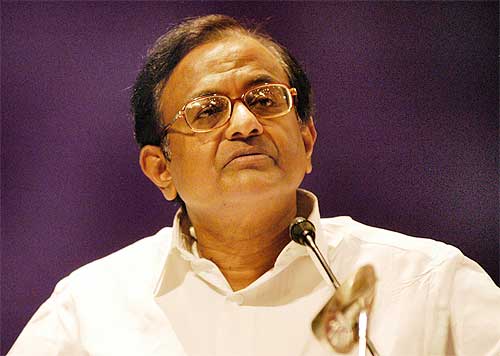
P Chidambaram, the Harvard educated lawyer has earned the reputation of being a good economic administrator capped by his image as a tough taskmaster during his short stint as home minister.
For Palaniappan Chidambaram, it is a long journey from a hardcore Leftist in 1960s to being India's liberal face and a bold reformer.
The 64-year-old Chidambaram, who hails from a small business community of prosperous Chettiars of Tamil Nadu, was a leading figure of economic reforms undertaken by P V Narasimha Rao government post 1991 and executed by Manmohan Singh as finance minister.
An MBA from Harvard, the eminent lawyer played a key role in that economic reforms team of Rao as minister of state for commerce with independent charge.
The experience gained during that period came to his help when he was made the finance minister in the United Front government in 1996 under H D Deve Gowda.
He presented a Budget that vastly slashed tax rates and contained a number of sops for the corporate sector which was hailed as a "Dream Budget". That the Budget could not have its full run due to unstable political situation and the fall of the government then, is a different matter.
Chidambaram again made his entry into the finance ministry after the UPA was voted to power in 2004 beating many other claimants to the post.
Acknowledging his ability to handle any job being given to him efficiently, Prime Minister Manmohan Singh had shifted him to the home ministry following the Mumbai terror attack which led to the resignation of Shivraj Patil from the Union Cabinet.
It was a home-coming of sorts for Chidambaram in the home ministry, where he was the junior minister in charge of internal security in the Rajiv Gandhi government in late 1980s.
During his short tenure, Chidambaram has successfully strengthened the security apparatus across the country. He reorganising the intelligence network, tightened the provisions in the anti-terror laws and amended the CISF Act to enable the security force to guard vital private installations.
As the minister for personnel in the Rajiv government, he carried out a number of administrative reforms.
Beginning his political career as a Congressman, Chidambaram, a suave and articulate politician, was first elected to the Lok Sabha in 1984 from the Sivaganga constituency in south Tamil Nadu and was inducted into ministry by Rajiv Gandhi.
Chidambaram's hardwork and adeptness in handling the economic issues facing the country made him India's youngest finance minister under the Gowda government in 1996.
Chidambaram had then quit the Congress and joined the Tamil Maanila Congress of G K Moopanar, who had floated the regional outfit after falling out with the Congress over aligning with AIADMK.
As the then finance minister, he had strived to bring discipline in government spending and introduced an innovative tax reforms programme to tackle the growing fiscal deficit.
Chidambaram, who lost the Parliamentary elections only once in 1999, parted ways with Moopanar in 2001 when the veteran Congressman decided to align with Jayalalithaa's AIAMDK for the 2001 Assembly elections and floated his own outfit Congress Jananayaga Peravai.
In his early life, Chidambaram practiced as an advocate in the Madras High Court and later in the Supreme Court, and was an adviser to several multi-national companies.
Since 1984, he was re-elected to the Lok Sabha from the same constituency in 1989, 1991, 1996, 1998, 2004 and in the just concluded Parliamentary elections. He lost only in 1999 on a TMC ticket.
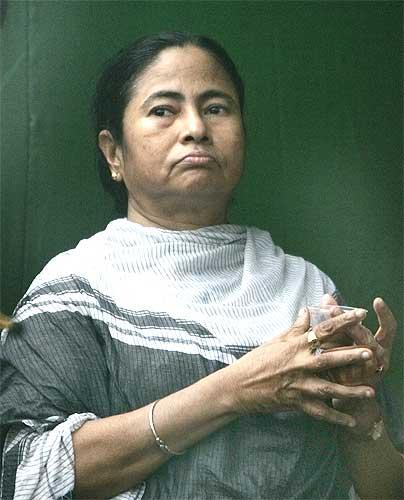
From just one seat in Lok Sabha poll five years ago, when many had written her political obituary, to the portals of power in Delhi, the wheel has turned full circle for Trinamool Congress chief Mamata Banerjee, the stormy petrel of West Bengal politics.
It has not been an easy journey though for the 54-year old former teacher ever since she parted ways with Congress in 1998 and floated Trinamool Congress.
Her big moment in electoral politics came when she became a giant killer in 1984 by defeating veteran Communist Party of India-Marxist leader Somnath Chatterjee in Lok Sabha elections in Jadavpore constituency.
She was subsequently elected to the Lok Sabha in 1998, and in 1991, 1996, 1998, 1999 and 2004 from Kolkata South.
Mamata's first tryst with the corridors of power came in 1991 when she became union minister of state for Human Resources Development, Youth Affairs and Sports, and Women and Child Development in P V Narasimha Rao government.
During the National Democratic Alliance rule under Prime Minister Atal Bihari Vajpayee government, Mamata was Railway Minister in 1999 and for Coal and Mines in 2004. She was also a union minister without portfolio for a brief period in 2003-4.
Mamata broke away from Congress in 1998 to form Trinamool Congress and two years later allied with BJP-led National Democratic Alliance. However, in early 2001, she quit as Railway Minister and NDA in early 2001 in the wake of Tehelka expose into defence deals to ally with Congress for assembly elections in West Bengal but she could make no headway against the Marxists.
Mamata had to eat a humble pie and return to NDA and Vajpayee cabinet in January 2004 to become Coal and Mines minister till the 2004 election. Ironically, the then NDA convenor and Defence Minister George Fernandes, whom she had targetted in 2001 over the Tehelka expose, helped her return to the alliance and later to the ministry.
A relentless fighter against CPM, Mamata never gave up and bided her time to bounce back. Her opportunity came when Nandigram and Singur exploded on the national scene. Despite her stint as a minister, Mamata has come to be known more as a politician of street protests busy in rabble rousing.
Nandigram made Mamata politically wiser as a large number of the affected farmers were Muslims and she began distancing herself from BJP before dump it altogether a few months later.
This paid off in 2007 panchayat elections. She then allied with Congress in the run up to Lok Sabha polls to avert a split in anti-Left votes. It made a formidable force against the state's ruling Left Front.
That she played her card well was proved by the red flag disappearing in eight of the 19 districts where the CPI-M failed to win a single seat in the parliamentary elections.
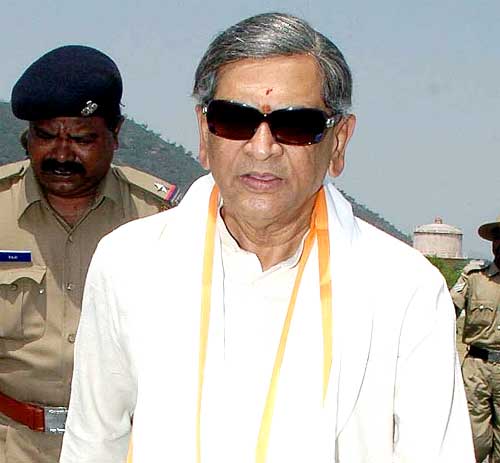
A suave and articulate leader and an astute politician, S M Krishna brings with him vast experience in the state and at the Centre and is credited with efforts to transform Bangalore as the Information Technology capital of India.
77-year-old Somananhalli Mallaiah Krishna, a Fulbright Scholar educated in George Washington and Southern Methodist Universities in the US, has had a roller coaster ride in in politics that has seen him occupy positions of power as Union Minister, Speaker, Chief Minister and Governor and out of it.
Handpicked by late P V Narasimha Rao as the chief ministerial candidate in Karnataka in the 1994 assembly elections, he lost to H D Deve Gowda in the race for power and had to overcome the image of "elitist" politician he had come to acquire.
But he worked assiduously in the next five years to defeat Janata Dal and to become the Chief Minister during which he took steps to transform Bangalore, which had the reputation of 'pensioners paradise' into the Silicon Valley of India.
He was largely associated with bringing about dynamic changes in Bangalore's infrastructure, which was busting at the seams, and took on his detractors who ridiculed his vision of changing the state capital into a Singapore-like city. But it is another story that Bangalore's needs have far outpaced its development.
An astute politician who displayed his leadership qualities early in his political career, Krishna has served multiple terms as an MP from Mandya district in Karnatka, the heartland of the Cauvery.
But during his tenure as Chief Minister in 199-2004 he came close earning severe rap from the Supreme Court when he undertook a padayatra challenging Tamil Nadu's share of the Cauvery river water.
He was a member of the third Karnataka Legislative Assembly in 1962-67 and in 1989-1992 and 2004 a member of the Karnataka Legislative Council in 1972-77.
Krishna has held the portfolio of minister for Commerce and Industries and Parliamentary Affairs, Karnataka in 1972-77 and occupied the prestigious post of the Speaker of the Assembly in 1989-92.
He was an MP in 1971-76 and 1980-84 and he held the post as Union Minister of State for Industry during 1983-84 and Minister of State for Finance in 1984-85. He was elected into the Rajya Sabha in 1996.
Krishna's influence had made many of his colleagues wary of his plans when he failed to repeat the success story in 2004, he was shifted from the state politics by being posted as the Maharashtra governor, a post he reluctantly accepted and palpably uncomfortable in.
However his interest in Karnataka politics made news in between short interludes with the savvy leader sending signals that he always wanted to stage a comeback. The news of his impeding re-entry kept making headlines, till he finally quit the governor's post and plunged back into state politics in 2008.
Krishna, who was rumoured to lead the Congress in the recent Lok Sabha elections in the state, not even fielded by the party, a fact he kept ruing. His induction in the cabinet is being perceived by many as way of lifting the sagging fortunes of the Congress in Karnataka and placating one of the dominant communities Vokkaligas, to which he belongs.
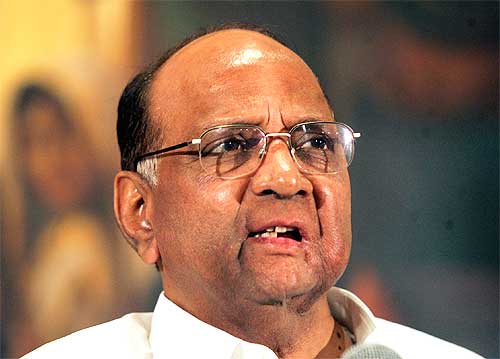
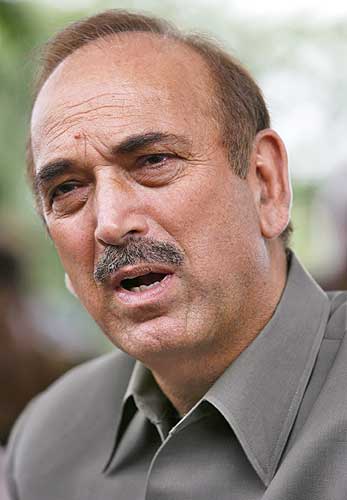
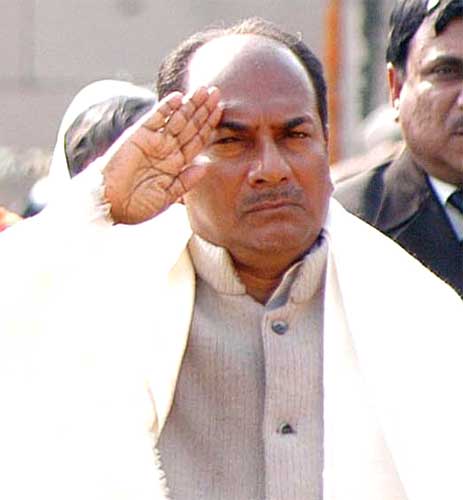
A K Antony, former Kerala chief minister, was the Defence Minister in the first UPA government. He is expected to retain the same profile again.
Antony became the youngest chief minister of Kerala as a 37-year-old in 1977. It took him more than 15 years to become the chief minister again, this time for a year between 1995 and 1996.
He is widely perceived to be honest in the Union Government.
Sixty-six-year-old Antony's squeaky clean image had earlier helped him stay on top of Kerala politics before he got caught in the factional politics.
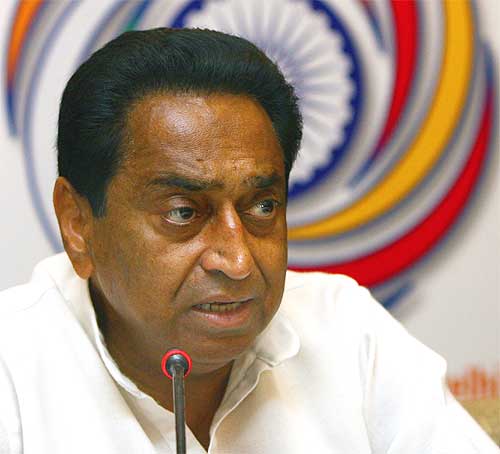
Kamal Nath entered politics courtesy Sanjay Gandhi, Indira Gandhi's younger son, and he strongly believed in the Gandhi scion's socialist vision. Today, Nath represents everything that is 'free-market'.
Nath, who has won eight elections from the backward and predominantly tribal constituency of Chhindwara, was in 2004 assigned the job of projecting the country's free-market image to the world.
"There's not been a change of heart. Clearly, times change. We needed something in the 50s and 60s to consolidate so this liberalisation was a natural flow from that," he said in a TV interview in 2006.
Nath has been an advocate of special economic zones to boost manufacturing. SEZ, a designated duty free enclave that is treated as foreign territory for trade operations, has been a bone of contention between the Finance and Commerce Ministries over revenue flows, while it has given ruling parties headaches over land acquisition.
His biggest challenge, however, is making these zones relevant in times of recession. Many SEZ developers are seeking de-notification citing the slowdown in the economy and liquidity crunch.
Nath joined the Indian National Congress in 1968 as a youth worker and was elected to Parliament first in 1980. He was first inducted into the Union Council of Ministers as Minister of Environment and Forests in June 1991 and took over as Minister of Commerce and Industry on May 24, 2004.
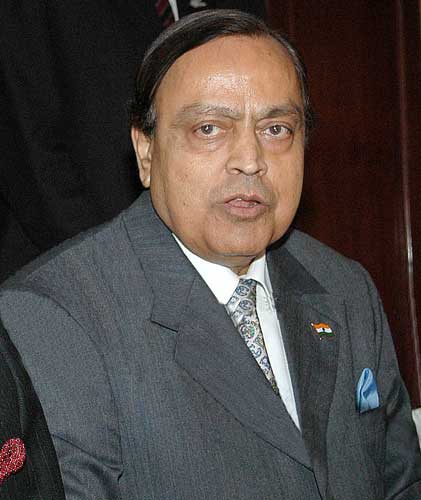
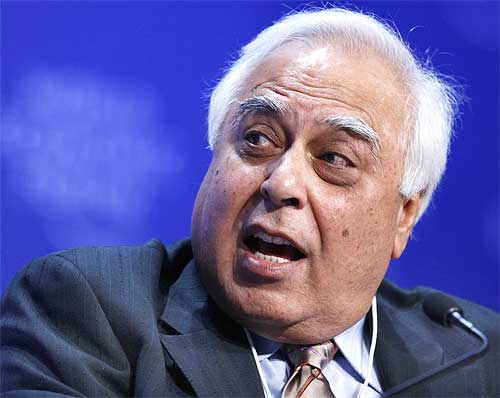
A lawyer by profession and a politician by accident, Kapil Sibal, 60, is one of the most recognizable public faces of Congress, who managed to turn the ministry of Science and Technology, considered by many as a non-happening place, into a high-profile one during his five-tenure from 2004.
Besides his achievements in the ministry, the Lok Sabha MP from Delhi's Chandni Chowk handled the tough negotiations at international fora on global response to climate change.
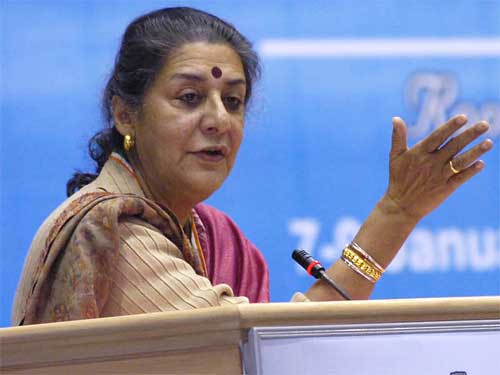
One of Congress' vibrant faces, Ambika Soni, 65, has risen to the occasion many a time and in the process earned herself goodwill of the party leadership.
The recent controversy over auctioning of Mahatma Gandhi's articles and the handling of the issue on her part as the tourism minister brought out her political acumen inherited over the years.
A close confidante of the Gandhi family, Soni has been at the helm of several parliamentary committees. An art lover, she is also widely acknowledged as a social worker.
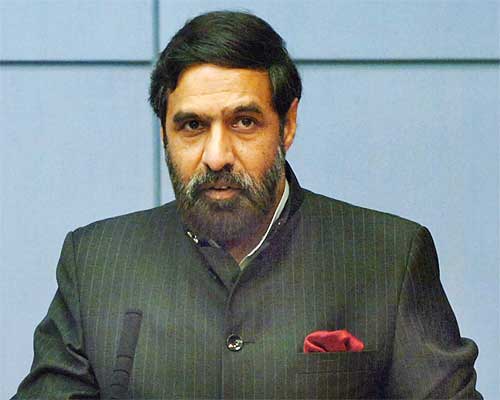
For Anand Sharma elevation to Cabinet rank is a long-awaited reward for his services to the Congress particularly his election campaign strategies.
The 56-year-old Union Minister of State in the previous government was part of Congress' 'War Room', which had been set up to spearhead the party's election campaign.
It was his idea of using the 'Jai Ho' song from Oscar winning movie Slumdog Millionaire during campaigning to strike a chord with the masses. It apparently served the purpose, even though rival BJP tried to counter it with 'Bhay Ho' slogan.
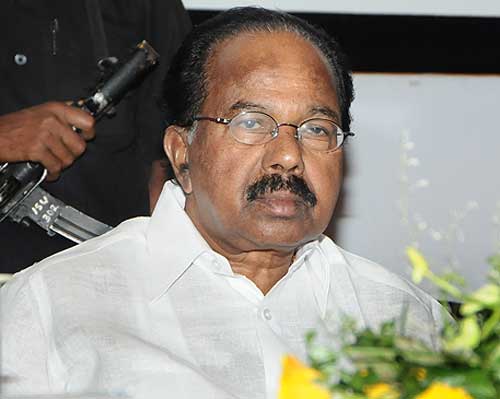
M Veerappa Moily is Congress' prominent backward community leader from Karnataka making his way into the central ministry with considerable administrative experience acquired during his stint as the chief minister of Karnataka.
Moily, 69, has been instrumental in spreading the benefits of OBC reservation in Karnataka as also the rest of the country. He was the chairman of the Oversight Committee for implementation of 27 per cent reservation for OBCs in central educational institutes in 2006.
As a loyal Congressman, he has been the chairman of the party's media department, chairman of the department of policy planning and coordination and Congress Working Committee member in charge of Andhra Pradesh and Assam.
Moily is a multifaceted personality -- a lawyer, a writer, a politician and one deeply involved in the study of good governance.
Moily recently completed his work as chairman of the Second Administrative Reforms Commission and brought out voluminous reports that could do any academic and public administrator proud.
His task as head of ARC has been a crucial one and his reports, especially the one on terrorism, was hailed by none other than Prime Minister Manmohan Singh who had suggested that government would follow the report in the wake of the 26/11 Mumbai terror attack.
He is also considered the chief architect of the new common entrance test system, an admission policy for technical education founded on merit, transparency and social justice.
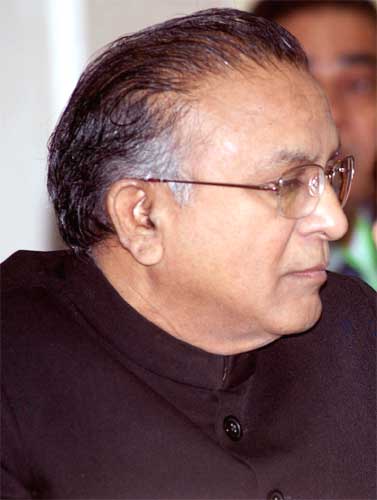
Senior Congress leader Sudini Jaipal Reddy has had an illustrious public life since the late 1960s.
Reddy, 67, was president of the Osmania University Students Union in Hyderabad twice and subsequently became a general secretary of the Andhra Pradesh Congress Committee. He was a member of the state legislative assembly from 1969 to 1984 for four terms representing Kalwakurthy in his native Mahabubnagar district.
Strongly opposing the imposition of national emergency, Reddy quit Congress and joined Janata Party. He contested against Indira Gandhi in Medak Lok Sabha poll in 1980 as common opposition candidate but lost by a huge margin of over two lakh votes.
Reddy got elected to the Lok Sabha in 1984 on Janata Party ticket and has been a member of lower house for four terms. He was also a member of Rajya Sabha on two occasions.
He held the position of leader of opposition in the Rajya Sabha for a year from July 1992 to June 1992. Acclaimed for the quality of his debates, Reddy was awarded the "Outstanding Parliamentarian" award in 1998.
During his tenure as Union Cabinet Minister for Information and Broadcasting in 1997-98 in the United Front government, he introduced Prasar Bharati Bill for providing autonomy to Doordarshan and All India Radio.
Again as the Information and Broadcasting Minister, he played a key role in the introduction of new FM radio channels in India and their expansion. Reddy was instrumental in introducing live telecast of Parliament proceedings.
Reddy, who was Urban Development Minister in the UPA government, is also credited with implementation of the Delhi Master Plan and for sanctioning metro rail projects in cities like Hyderabad.
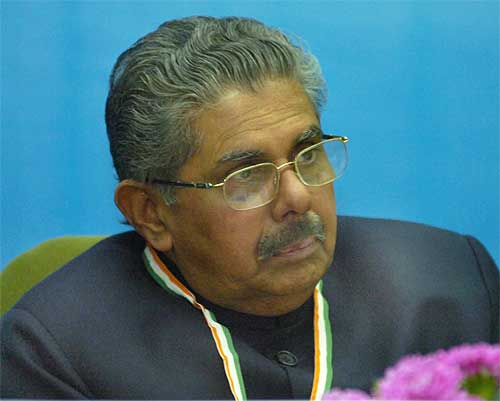
Vayalar Ravi assumed office as the Overseas Indian Affairs Minister in 2006.
Born in 1937 in Vayalar village of Kerala's Alappuzha district, in a middle-class family of a freedom fighter, Ravi began his career as a student leader. In 1957, he organised the Kerala Students Union (KSU), which pioneered the students' movement in the state and helped the Congress entrench itself, in Kerala.
Ravi was elected to the KPCC in 1967 and became an AICC member. He was general secretary of the Indian Youth Congress when Narain Dutt Tiwari was the president. With the consent of Indira Gandhi, Ravi organized the National Student's Union of India.
In 2001, he became the general secretary of the All India Congress Committee. He was again elected to the Rajya Sabha in 2003. Before assuming charge as OIA minister, he was the chairman of Parliamentary Standing Committee on Human Resource Development.
A postgraduate and a Bachelor of Law, Ravi is an excellent orator, a prolific writer and an outstanding parliamentarian whose knowledge of constitutional matters is legendary.
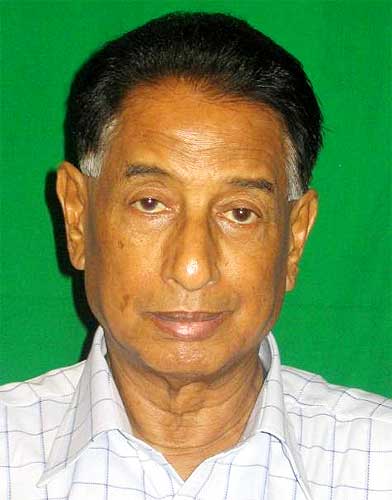
The elevation to a Cabinet berth was a long-awaited reward for Bijoy Krishna Handique.
Six-term MP from Jorhat in Assam, Handique is a known Nehru-Gandhi family loyalist and a non-controversial leader who served as the minister of state for parliamentary affairs in the outgoing government.
The 74-year-old Handique's elevation is significant also in view of the fact that he is the only representative from the northeast in the new Cabinet.
Only son of Assam's noted educationist late Krishna Kanta Handique, who was the first Vice Chancellor of Gauhati University, Handique joined the Congress early in his age and became an MLA in 1972 for the first time.
In 1980, Handique was elected to the Rajya Sabha and served the Congress party under Indira Gandhi in various capacities. He was first elected to the Lok Sabha in 1991 from Jorhat and held the post of AICC secretary in-charge of several states.
Handique was subsequently elected to the Lok Sabha in 1996, 1998, 1999, 2004 and in the just-concluded Lok Sabha polls from the traditional Jorhat seat. In 2004, he was first appointed as minister of state for defence. In 2006, he was shifted to the chemical and fertilizer ministry.
During the tenure of the Manmohan Singh government he was also holding the charge of minister of state for parliamentary affairs. The Handique family, which owns a number of tea gardens, is also known for their philanthropic works and contributed a large sum of money for setting up of several higher educational institutions in Assam, including a leading girls' college in Guwahati.
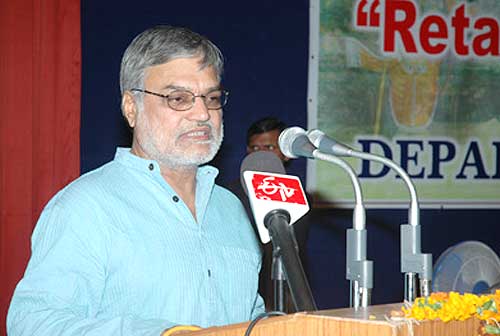
Lady Luck has finally smiled on C P Joshi.
Only six months ago, the Rajasthan Congress chief lost in the assembly polls from Nathdwara by a solitary vote but he made a remarkable comeback by winning the Lok Sabha polls and making it to the Union Cabinet.
For the 59-year-old four-time MLA, inclusion in the Union Cabinet is a reward for the key role he played in the party's revival in the state along with Chief Minister Ashok Gehlot.
Known to be close to Congress General Secretary Rahul Gandhi, the MP from Bhilwara is considered an astute politician. He played a key role as member of opposition during the entire five-year-term of BJP government, guiding his party to wrest power from the rival.
He may have lost the assembly elections from his birth place Nathdwara but he returned to emerge victorious from Bhilwara Lok Sabha constituency with a whopping margin of 1.35 lakh votes.
A doctorate in psychology, Joshi began his political career as a student leader and as he matured as a politician, he found a place in the 1998 Gehlot government and held various portfolios in like education, rural development and Panchayati Raj.
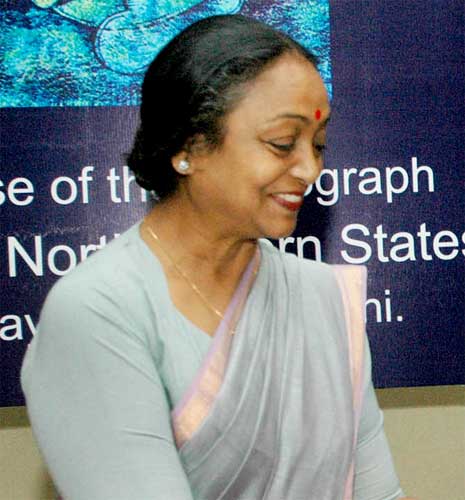
An eminent lawyer-turned-politician, Meira Kumar was one of the least visible UPA ministers. She was minister of Social Justice and Empowerment in the UPA government.
She did her MA, LLB, Advanced Diploma in Spanish Educated at Indraprastha College and Miranda House, University of Delhi.
In 1973, she joined the Indian Foreign Service and served at embassies in Spain, United Kingdom and Mauritius. While serving for IFS, she also worked in Embassy of India, Madrid from 1976 to 77; she has been the High Commission of India, London from1977 to 79 and Ministry of External Affairs during 1980-85.
Born on March 31, 1945, to Deputy Prime Minister and prominent Dalit leader Late Jagjivan Ram and freedom fighter Indrani Devi at Patna, Meira's induction to politics took place in 1985 and she was elected from Bijnor in Uttar Pradesh. From Karol Bagh in Delhi, She became a member of the eleventh and twelfth Lok Sabha.
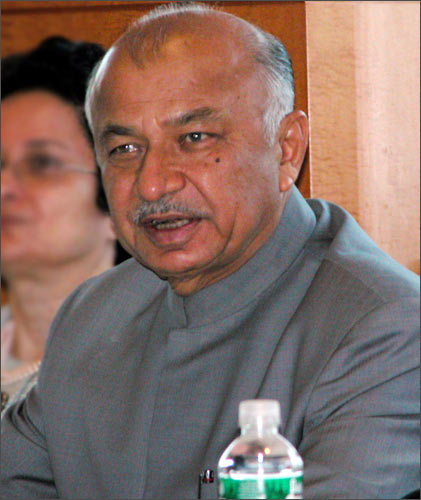
A former chief minister of Maharashtra, Sushil Kumar Shinde served as the Power minister in the first UPA regime.
He was the first Dalit to serve as chief minister of Maharashtra.
Despite the Congress winning the 2004 Maharashtra assembly elections, he lost the bid to become Chief Minister for another term and was replaced by Vilasrao Deshmukh.
On October 30, 2004, he was appointed the Governor of Andhra Pradesh (Constitutionally, the post of governor of an Indian state is not a political post.) He replaced Surjit Singh Barnala, who became the Governor of Tamil Nadu. He served as governor for slightly more than one year before resigning and leaving office on January 29, 2006.
Shinde was elected unopposed to the Rajya Sabha from Maharashtra on March 20, 2006.